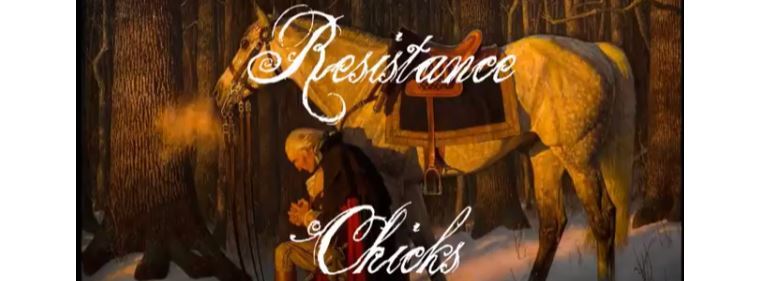
- Web Page
- <a rel="me" resistancechicks.com
Hey y'all, Leah and Michelle here! We're just a couple of sisters who own an urban farm in Ohio. We hope to offer you REAL, relevant news, with maybe a few laughs on the side. We want to empower you, the Resistance, with tools to stand up against tyranny from all sides. As we always say, "we don't lean to the Right and we don't lean to the Left... we lean on the Word of God." So everything you hear from us will be filtered through that. We stand for a righteous America, the one our Founding Fath
PG here. Good Old John Locke is an extremely reliable source for the anointing of God, inspiration, and empowerment for the average person who just wants to live a peaceful, quiet life and have peace with his neighbor. 1 Thessalonians 4:11-12
Amplified Bible, Classic Edition
11 To make it your ambition and definitely endeavor to live quietly and peacefully, to mind your own affairs, and to work with your hands, as we charged you,
12 So that you may bear yourselves becomingly and be correct and honorable and command the respect of the outside world, being dependent on nobody [self-supporting] and having need of nothing.
Today's reading, Day 62, Monday, April 14, 2025, Chapter 11, Section 134, Page 60 and 61, John Locke's "Second Treatise of Government with A Letter Concerning Toleration," is at the bottom of the blog. All reading can be found in the opening section of the blog in numerical order. (You might have to copy and paste) https://isaiah58ministries.blogspot.com/2025/04/7-john-locke-stogwalct-starting-chapter.html
CHAPTER. XI.
OF THE EXTENT OF THE LEGISLATIVE POWER.
Sect. 134. THE great end of men's entering into society, being the enjoyment of their properties in peace and safety, and the great instrument and means of that being the laws established in that society;the first and fundamental positive law of all commonwealths is the establishing of the legislative power;
as the first and fundamental natural law, which is to govern even the legislative itself, is the preservation of the society, and (as far
as will consist with the public good) of every person in it. This legislative is not only the supreme power of the commonwealth, but sacred and unalterable in the hands where the community have once placed it; nor can any edict of any body else, in what form soever conceived, or by what power soever backed, have the force and obligation of a law, which has not its sanction from
that legislative which the public has chosen and appointed: for without this the law could not have that, which is absolutely necessary to its being a law,* the consent of the society, over whom no body can have a power to make laws, but by their own consent, and by authority received from them; and
therefore all the obedience, which by the most solemn ties any one can be obliged to pay, ultimately terminates in this supreme power, and is directed by those laws which it enacts: nor can any oaths to any foreign power whatsoever, or any domestic subordinate power, discharge any member of the
society from his obedience to the legislative, acting pursuant to their trust; nor oblige him to any obedience contrary to the laws so enacted, or farther than they do allow; it being ridiculous to imagine one can be tied ultimately to obey any power in the society, which is not the supreme. (*The lawful power of making laws to command whole politic societies of men, belonging so properly unto the same intire societies, that for any prince or potentate of what kind soever upon earth, to exercise the same of himself, and not by express commission immediately and personally received from God, or else by authority derived at the first from their consent, upon whose persons they impose laws,
it is no better than mere tyranny. Laws they are not therefore which public approbation hath not made so. Hooker's Eccl. Pol. l. i. sect. 10. Of this point therefore we are to note, that such men naturally have no full and perfect power to command whole politic multitudes of men, therefore utterly without our consent, we could in such sort be at no man's commandment living. And to be commanded we do consent, when that society, whereof









